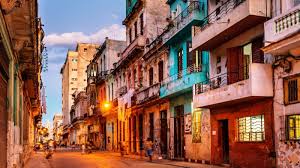Historical fiction has long been a favorite genre for readers who love to be transported to different eras and immerse themselves in the lives of people from the past. In 2024, a growing trend in this genre is the inclusion of diverse characters, reflecting the broader push for representation across literature. These novels do more than just tell stories set in historical contexts; they shine a light on perspectives often overlooked in history books, enriching the reader’s understanding of the past.
From the powerful narratives of underrepresented communities to stories that explore cross-cultural experiences, historical fiction in 2024 offers a fresh and inclusive perspective. Here are some of the top historical fiction novels featuring diverse characters that you won’t want to miss this year.
1. “The Lost Kingdom” by Amara James

Set in the 15th century during the height of the Mali Empire, “The Lost Kingdom” by Amara James follows the story of Aminata, a young woman destined to be a powerful leader in her community. The novel intricately weaves West African history with the story of Aminata’s struggle to protect her kingdom from foreign invaders. James, a historian turned novelist, brings to life the richness of African kingdoms, a narrative often neglected in mainstream historical fiction.
This novel stands out not only for its depiction of African history but also for its strong, complex female protagonist. Aminata’s journey from a village leader to a warrior queen showcases the resilience and ingenuity of African women in history. Readers are treated to vivid descriptions of West African landscapes, culture, and the inner workings of the Mali Empire, all while rooting for Aminata as she fights to protect her people.
2. “The Jasmine Chronicles” by Lina Gupta
“The Jasmine Chronicles” transports readers to colonial India during the British Raj. Lina Gupta’s novel follows two families—one British, one Indian—through the turbulence of the early 20th century. At the center of the story is Lakshmi, a young Indian woman navigating the complexities of colonial rule, cultural expectations, and her own identity. The novel deftly explores the impact of British colonization on Indian society, particularly on women.
Gupta’s writing excels in portraying the cultural and social tensions of the time, making the characters’ struggles deeply relatable. The novel offers a window into the lives of Indian women under British rule, shedding light on the intersection of gender, class, and colonialism. With richly detailed settings and emotionally resonant storytelling, “The Jasmine Chronicles” stands out as one of the top historical fiction novels in 2024.
3. “Crossing Borders” by Enrique Martinez

Enrique Martinez’s “Crossing Borders” is set against the backdrop of the Mexican Revolution, focusing on the stories of indigenous communities and Afro-Mexicans who played crucial roles in this turbulent period of history. The novel centers on Diego, a mestizo man with indigenous and African roots, who becomes embroiled in the revolution. His journey from a small village to becoming a revolutionary leader highlights the often-overlooked contributions of marginalized groups in Mexican history.
Martinez brings to life the rich tapestry of Mexican culture and history through his vivid descriptions and dynamic characters. The novel is not only a gripping historical adventure but also a poignant exploration of identity, resistance, and community. “Crossing Borders” challenges traditional narratives of the Mexican Revolution by placing indigenous and Afro-Mexican voices at the forefront.
4. “Silk Roads and Jasmine Blooms” by Amina Al-Farsi
Set in the vibrant trading hubs of the ancient Silk Road, Amina Al-Farsi’s “Silk Roads and Jasmine Blooms” tells the story of Leila, a Persian merchant’s daughter, and her journey across Asia. The novel spans from the Middle East to China, capturing the diversity of cultures and people along the ancient trade routes. Leila’s travels expose her to new ideas, religions, and challenges, making her story a fascinating exploration of cultural exchange and the role of women in trade during ancient times.
Al-Farsi’s detailed research and lyrical writing bring the Silk Road to life, with descriptions of bustling markets, caravans, and the vast landscapes that connected East and West. Leila is a strong, resourceful protagonist who defies the expectations placed on her by society, making her a compelling figure in this sweeping historical narrative.
5. “Red Clay, Black Sky” by Malcolm Stevens
Malcolm Stevens’ “Red Clay, Black Sky” takes readers to the Jim Crow South during the early 20th century. The novel follows the life of Samuel, an African American sharecropper, and his family as they navigate the oppressive realities of segregation. Stevens doesn’t shy away from depicting the harsh conditions and brutal racism that African Americans faced during this period, but he also highlights their resilience, community, and efforts to fight for justice.
The novel’s strength lies in its rich character development and emotional depth. Samuel’s determination to secure a better future for his children resonates with readers, while the historical context provides a sobering look at the systemic racism that has shaped America. “Red Clay, Black Sky” is a powerful addition to the canon of African American historical fiction and one of the standout novels of 2024.
6. “The Samurai’s Daughter” by Hana Sato
Set in feudal Japan, “The Samurai’s Daughter” by Hana Sato tells the story of Aiko, a young woman who must navigate the strict social hierarchy of samurai society after her father’s death. The novel explores themes of honor, loyalty, and family, all while shedding light on the role of women in samurai culture. Sato’s deep knowledge of Japanese history and culture shines through in her detailed depictions of life in feudal Japan, making this novel both educational and entertaining.
Aiko’s journey from being a dutiful daughter to becoming a powerful figure in her own right is both inspiring and captivating. The novel’s focus on a female protagonist in a male-dominated society adds a fresh perspective to the genre of historical fiction, making it one of the top picks for readers in 2024.
7. “The Winds of Havana” by Carmen Velázquez

“The Winds of Havana” by Carmen Velázquez takes readers to 19th century Cuba, during the struggle for independence from Spanish rule. The novel centers on Lucia, a mixed-race woman born to a Spanish father and an Afro-Cuban mother, who becomes involved in the fight for Cuban independence. Velázquez paints a vivid picture of colonial Cuba, capturing the complexities of race, class, and identity in a society on the brink of revolution.
Lucia’s personal journey mirrors the broader struggle for freedom, making “The Winds of Havana” both a powerful historical novel and a deeply personal story of resilience and courage. Velázquez’s portrayal of Cuba’s rich cultural heritage and the tensions of colonial rule make this novel a must-read for fans of historical fiction.
Conclusion
Historical fiction in 2024 is set to offer readers a rich tapestry of diverse voices and perspectives. These novels not only transport readers to different times and places but also provide a deeper understanding of the complexities of history through the eyes of underrepresented characters. From the bustling markets of the Silk Road to the revolutionary fervor of colonial Cuba, these stories bring history to life in new and exciting ways. If you’re a fan of historical fiction, be sure to add these diverse novels to your reading list in 2024.


